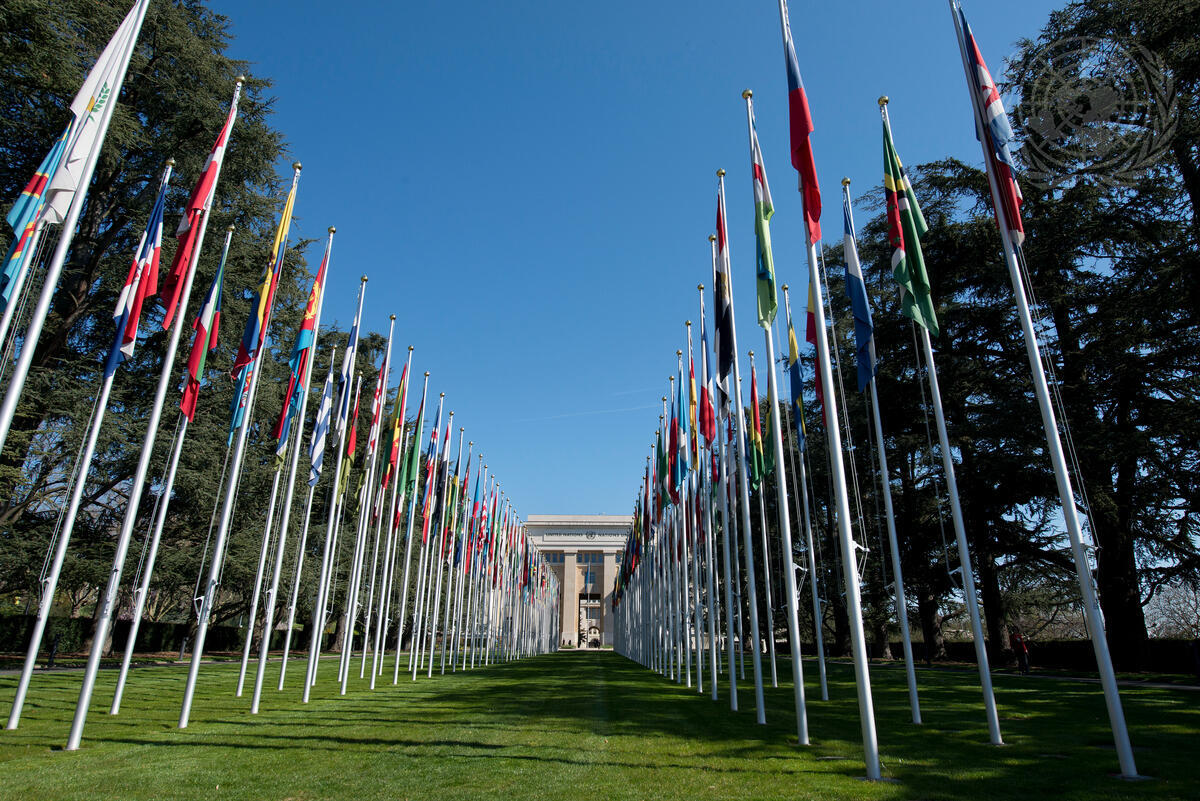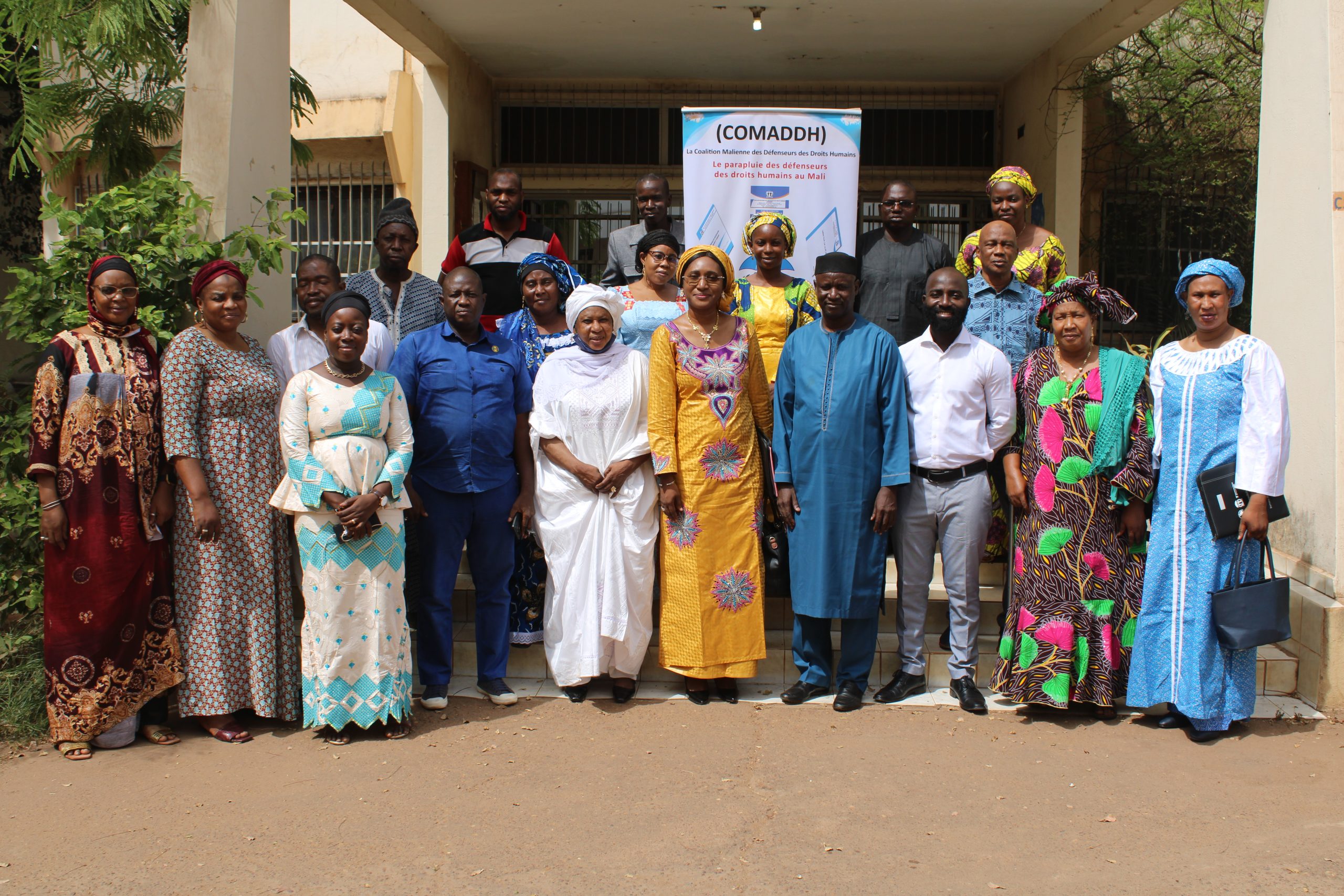Strategic Workshop
The Malian Coalition of Human Rights Defenders (COMADDH), the National Human Rights Commission of Mali (CNDH) and ISHR co-hosted, from 24 to 25 April 2024, in Bamako (Mali), a workshop on the operationalisation of the country’s Mechanism for the Protection of Human Rights Defenders. Over 20 staff members of the CNDH and civil society activists attended the workshop. For two days, the participants engaged in the content and implementation of the 2018 Human Rights Defenders Law, the 2020 Decree Implementing the Human Rights Defenders Law and the 2021 Decision establishing the Characteristics and Procedures for Granting and Withdrawing the Professional card for Human Rights Defenders. Participants highlighted problematic provisions that could hinder the prospects for defenders to freely and effectively realise their activities. The critical engagement with these legal texts paved the way for the drafting and adoption of a one-year action plan to ensure the Mechanism is operational and effective. The Vice-Chairperson of the CNDH, advocate Aissata Tembely, welcomed the organisation of the workshop as an opportunity to adopt recommendations for the operationalisation of the Mechanism.
Protection Mechanism
Although the Human Rights Defenders Act did not institute a specific mechanism to protect defenders, its Implementing Decree did. Under Article 13(2), the Decree confers on the CNDH Sub-Commission on the Protection of Human Rights the responsibility to protect human rights defenders. The Mechanism is a vital tool to prevent and react against violations of the human rights defenders Law due to its investigative power. The Decree provides that ‘in carrying out its duties, the Sub-Commission on the Protection of Human Rights may call on any person or structure working in the field of human rights protection and promotion.’ Though the decree is four years old, participants agreed the Mechanism has not been operating effectively; the actions of the CNDH on human rights defenders have remained erratic and when conducted, they are done on a case-by-case basis. They equally agreed this reality results from the CNDH’s low knowledge of the legal framework protecting defenders in Mali and the absence of internal regulations within the CNDH stipulating the composition, mandate and means of action of the Mechanism.
‘The CNDH should adopt accompanying measures to render the mechanism effective’, Ibrahim dit Souley Maïga, the Chairperson of the Sub-Commission Protection, emphasised.
A fragile civic space
Participants identified the current political context characterised by an increasing adoption of governmental measures to restrict the civic space as a major threat to the exercise of human rights defenders’ activities and the work of the Mechanism. On 10 April 2024, the government suspended the activities of political parties and associations until further notice. Echoing the government decision, the High Communication Authority called, a day later, on the media to stop all broadcasting and publication of the activities of political parties and associations of a political nature. Recent calls by political parties and associations to end the transition and hold peaceful elections might have prompted the country authorities to adopt these measures which adversely impact defenders.
2024 Action Plan
Cognisant of the ever-increasing role of defenders in the current socio-political context, the participants adopted a 2024 Action Plan and defined activities to strengthen the Mechanism’s ability to realise its mandate. The Action Plan centres around three main objectives: a) operationalisation of the Protection Mechanism; b) Strengthening the ownership of the Protection Mechanism by key stakeholders; c) contribution to the dissemination and effective implementation of legal texts on the protection of human rights defenders.
Amongst activities listed in the plan are the clarification of an internal structure for the Mechanism involving civil society organisations, approaching various ministries for the allocation of a specific budget to the Mechanism and advocating for the suppression of the professional defender’s card or, if necessary, advocate that the prerogatives of granting and withdrawing the card be entrusted to the Mechanism.




